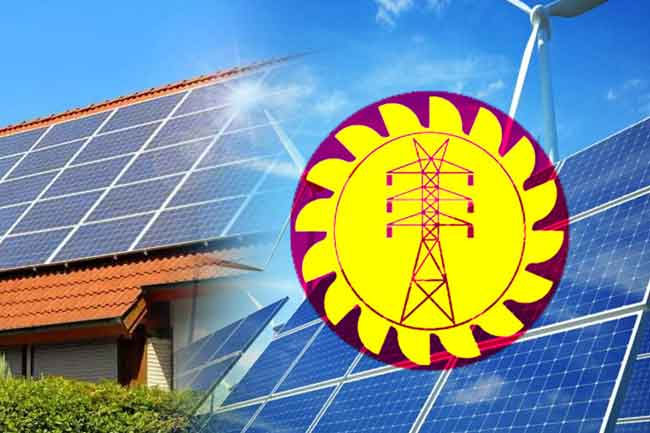By: Staff Writer
April 15, Colombo (LNW): The Ceylon Electricity Board (CEB) has made an urgent appeal to rooftop solar system owners across Sri Lanka to voluntarily switch off their systems between 9:00 a.m. and 3:00 p.m. daily until April 21, 2025. This request comes during the Sinhala and Tamil New Year season when electricity demand drops significantly, posing a serious threat to the stability of the national power grid due to excessive solar power generation.
The CEB explained that sunny weather during the holiday period results in high output from rooftop solar systems, while energy consumption drops sharply with the closure of offices and factories. This imbalance creates operational challenges and increases the risk of grid instability and potential blackouts.
The core technical issue revolves around the inability of solar power systems to contribute to a key stabilizing factor known as “inertia.” Inertia is typically supplied by the rotating mass of large generators—such as hydro, thermal, and coal power plants—that help maintain a steady frequency across the grid. When demand is low and solar output is high, these large plants are forced to shut down, removing vital inertia from the system.
Because rooftop solar systems are not centrally controlled and automatically generate power based on sunlight rather than demand, the CEB cannot directly manage their output. This uncontrolled input of power at times of low consumption can overwhelm the grid, increasing the likelihood of voltage and frequency fluctuations.
To illustrate the seriousness of the issue, the CEB referenced data from April 11 and 12, when daytime electricity demand fell to just 1,550 MW. In response, the CEB took immediate steps to stabilize the grid by limiting solar power intake and maintaining essential power plants online. These actions ensured inertia levels remained at 56%—sufficient to avoid outages. Without intervention, the inertia level could have dropped to 34%, making the grid highly vulnerable to blackouts.
The CEB highlighted the importance of such grid-stabilizing actions, especially as Sri Lanka currently lacks the advanced infrastructure—such as Battery Energy Storage Systems (BESS), water batteries, and grid-forming inverters—that would allow greater flexibility in managing solar energy.
With over 7 million electricity users in the country and only around 100,000 rooftop solar owners, the CEB emphasized that grid instability affects everyone. Therefore, public cooperation from solar system users is essential to prevent disruptions and maintain reliable power supply for all citizens during this critical holiday period.
As a supportive measure, the CEB will also issue SMS reminders to all registered rooftop solar customers, encouraging them to shut down their systems temporarily during the specified hours to help maintain the grid’s integrity.
The CEB reiterated that this is a temporary and voluntary request aimed at ensuring national energy security during an unusually sensitive time for the power grid.

